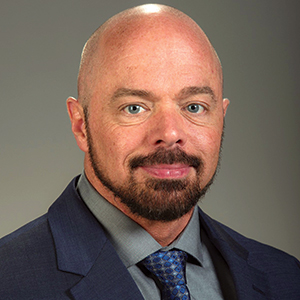For many people, a trip to a doctor’s office is a last resort, an appointment to schedule only when something is obviously wrong. And that tendency has been exacerbated by the pandemic, as people avoided leaving home and some facilities stopped offering elective surgeries.
But regular health screenings can reduce the risk of serious illness and death by identifying issues for early intervention.
“Americans tend to be reactive when it comes to health care, instead of being proactive and getting in front of potential issues,” says Timothy Law Sr., D.O., MBA, vice president and executive medical director, Clinical Services at Highmark Blue Cross Blue Shield. “People are generally afraid to use insurance because their rates will increase, but health insurance has built-in checks; insurers want you to take advantage of preventive services, often at no cost to yourself, to identify underlying issues before they become a major health crisis.”
Smart Business spoke with Law about the importance of preventive health screenings and why you should take advantage of the benefits offered by your insurance plan.
Why is preventive care important?
You may feel fine but have an underlying condition with no symptoms. If you have an injury or an illness like strep throat, you know you are sick, you take medicine and you feel better. But with high blood pressure, for example, you may not have any symptoms. Identifying and treating that condition can prevent the damage it can do over the years; it’s a very treatable thing.
Preventive screenings look under the surface to identify and treat problems before they advance. Screenings also establish a baseline. If you don’t know what your normal is, you don’t know what’s changed. If someone has a heart rate of 40 beats per minute, that could be a concern, but if they’ve had that for 40 years, that could be their normal. Everyone is different and you need to know where you started.
How can employers encourage screenings, and how does doing so benefit them?
It’s all about communication and education. If an employer offers a great program that includes annual wellness checks, mammography, cancer screenings, etc., and you don’t let people know, it doesn’t do any good to have it.
If you have a newsletter, send out information about getting wellness exams. Offer incentives. For example, an employer can create an online form for employees to check off screenings, and if they check all the boxes, they can get lower premiums the following year. Smaller employers can offer a day off or other perks to encourage screenings.
Keeping employees healthy keeps them out of the hospital and with their families. And that benefits employers, as well. You’re going to pay more if your employee has a catastrophic illness, and a healthier workforce means fewer missed workdays. It’s a win for both sides.
How can virtual visits play a role in staying healthy?
Much of what is done in person can be done virtually. The physician needs height and weight, which the patient can provide, and home blood pressure machines are common. Then the physician moves through the rest of the exam, screening for depression, asking questions and scheduling procedures. Telehealth is a good alternative for those who can’t get to an office and increases participation if they are able to do an appointment over the phone.
During the pandemic, we saw an 8,000 percent increase in virtual behavioral health appointments and a 3,000 percent increase in the physical medicine space, although that has decreased as people want to get back to in-person visits. And even though the pandemic caused a reduction in preventive screenings, people are now talking about them more. We don’t know where the world is going to be tomorrow, and people realize that if they put something off today, another event like the pandemic could keep them at home again.
Many preventive screenings are covered at zero cost to the patient. Get out of the mindset of being reactionary and be proactive by taking advantage of the services offered by your health insurance plan. ●
INSIGHTS Health Care is brought to you by Highmark Blue Cross Blue Shield

